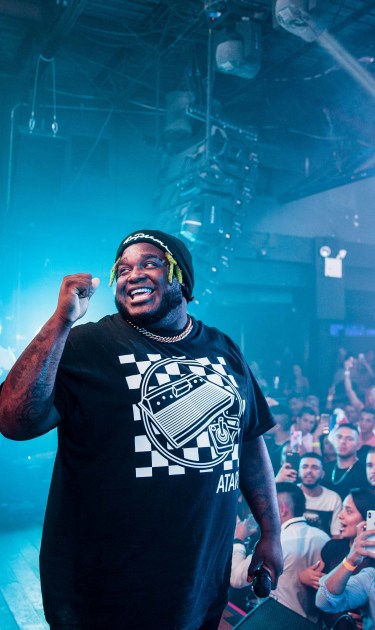“It means being a real human. A hard worker,” Sech says about the icon label. “A person who’s focused on what he wants.”
In much-needed representation of those stuck in the dichotomy between being completely enthused by the idea of sweat-filled nights out and in a committed relationship with our beds, art or both – Sech hates going to the club. When Darrell said “everybody go to the discoteque,” Carlos’ original spoken-sung response was probably “no hombe.” The Panamanian artist behind “Otro Trago” and at the forefront of urbano’s maturation heeds to – and invests time in – little else but music.
A beach (with his laptop lounging within reach) is more his vibe. In other words, siempre activo isn’t just a saying for the rising urbano star, it’s a lifestyle. Notorious for making swift escapes at parkins and the club, his friends know they’ve seen the last of him if and when he’s cordial enough to announce his exit with these three infamous words: “Voy al baño.”
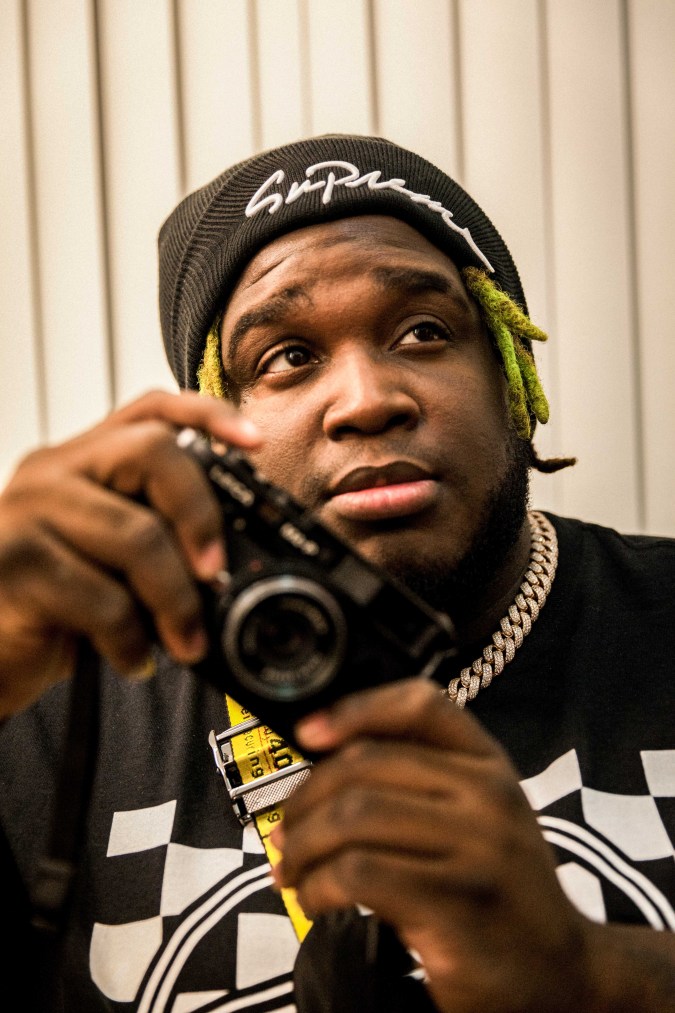
At this point in Sech’s budding career, he’s zealous about reaching his target and has a minimal basket of can’t-do-withouts to keep him content on the way. The latter encases a jet ski, a four-wheeler, a boat and, of course, a studio. How it’ll all fit in a carry-on is beside me, but perhaps he’ll design the bag himself because – the former is the coveted “icon” tag.

In terms of priority, the only thing in even remote competition to reaching that status is his other goal: more sleep. When we meet at Remezcla’s Bushwick office, Sech is going on 48 hours without as much as a wink. Accessorized by a faint smile, he sits in a glass room sporting a Balenciaga pullover he’ll later go on to tug on and stretch over his hands between remarks. In the last 24 hours, Sech touched ground in Miami to shoot the vampy video for “El Favor,” traded time at a rest stop between cities for relished studio time between the ungodly 2 to 7 a.m. hours of the day and hopped onto a New York-bound plane followed by a car straight to Brooklyn, where he’s now sitting across from me, eating Sal’s pizza in a rectangular glass room. Appearing timid initially, Sech is not shy; he’d later prop his chair back and profess he’s just never been a fan of attention.
The last year has been quite the whirlwind for 25-year-old Carlos Isaías Morales, and he’ll have to get used to it. In April 2018, his sophomore album, Sueños, formally established him as one of urbano’s honchos. Riddled with odes to his homeland and cheeky anthems that opt for nuance rather than the genre’s typical predictable vulgarity, he more than proved himself as a producer, songwriter and all-around talent, making it virtually impossible not to take notice.
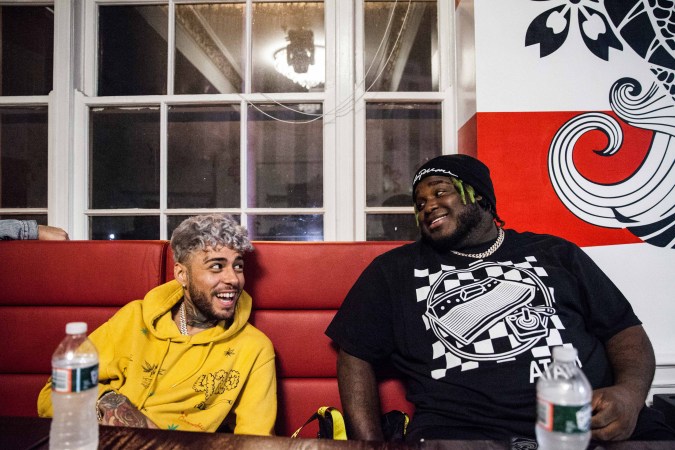
By May 2018, Sech debuted on Latin charts with Sueños coming in at No. 8 on Top Latin Albums. It now sits at No. 3, preceded only by Bad Bunny’s X100PRE and El Conejo Malo’s joint album with J Balvin, Oasis. Most recently, “Otro Trago” comfortably sat atop the Hot Latin Songs list throughout the month of August, officially knighting it a song of the summer. The sultry confidence-booster also landed him his first Hot 100 this past June. Y ni se diga when it comes to YouTube, where he’s racked up more than a billion views.

“A lot of people say, ‘Not everything is work,’” Sech muses on our culture’s obsession with learning the secret to the mythical work-life balance. “There is no balance. Mi pesa se daño. Work forever.” That night he’ll perform at La Boom, a frequented club in Queens. His photographer pops in to ask about scheduling a hair appointment before then. He isn’t going to have time to make it. It’s funny, he confirms, that people think a top artist’s life is all glamour. “People don’t talk about it, but if you don’t have time to go to the hotel, what are you gonna do?… Wipes. A lo marino!” he laughs.
Just five years ago, Sech was dabbling in everything from construction work to flipping hamburgers and serving hot dogs in order to rack up enough balboas for a makeshift studio. For a single night, he even took on the role of a pseudo-mechanic. When someone asked him if he’d be able to fix their car’s sound equipment, Sech responded with a hearty yes. “Yo no sé nada de eso,” he admits, wide-eyed thinking back on his humble beginnings. He and Santi, his now chorista and longtime friend, stayed up all night watching YouTube videos to figure it out. They made $50 that day. Sech’s eyes glistened as he chuckled, remembering the feast they had in celebration.
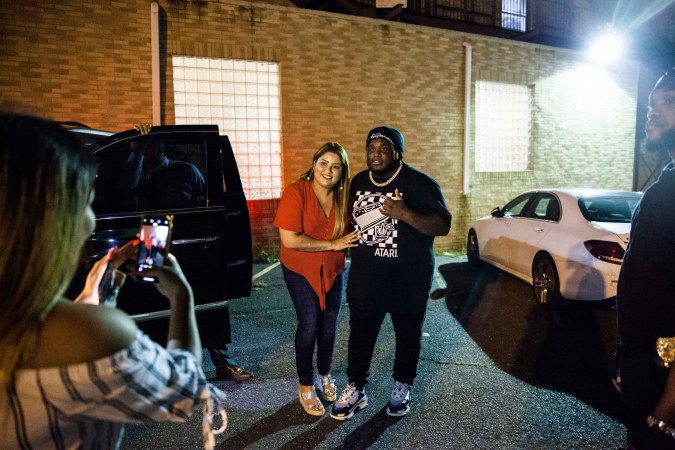
Morales was born in Rio Abajo, Panama. Though completely over school by the age of 16, he graduated high school with honors and flip-flopped between Miami, New York and Panama for grade school. That exposure to North American culture established his love for the music he still listens to on his own time – jazz, blues, R&B and hip-hop.

The youngest of four boys, Sech is son to two pastors. Not uncommon to exceptionally petty older brother behavior, Abdiel, lucky owner of the drum in the Morales household, refused to teach his little brother how to play when he started tapping into his creative side and expressed interest in percussion. “I would play every time he left the house,” Sech recalls as a sonrisa de travieso spreads across his face. “Until one day, I showed him what I taught myself and he sort of started paying attention.” He then went on to get the hang of the piano, guitar, bass and voice control, without any professional training. Abdiel is now, in a perfect turn of events, Sech’s drummer.
Family (given and chosen) is important to the entirely self-taught artist, and a significant part of the reason Sech took his love for music from his bedroom to the world. “El Bloke,” a phrase he utters as part of his credit runs in songs, is a business collective he started before getting signed to Rich Music. It consists of a team of about seven friends – managers, advisers, chorus singers, etc. Todos panameños and still with him to this day.
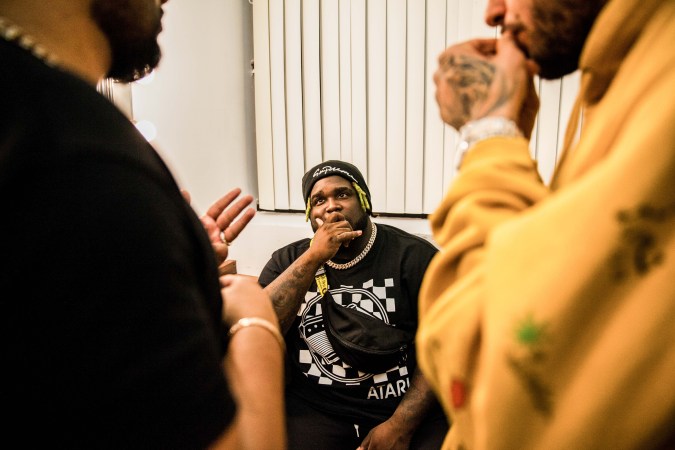
“My dreams were always to be involved in the music industry, and to be able to help my family through my music. To push us forward. Now my dream is – outside of that – to become an icon. It’s a lot,” he says hearing his voice out loud, catching the weight of the word he threw out. “It means influence, in every aspect… music, fashion. It means leaving a mark,” but perhaps most of all, “it’s a responsibility.”
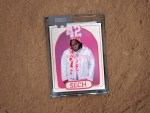
A responsibility to do well by his legacy, country, family and future generations of Panamanian artists as well as Afro-Latinx aspiring urbano artists around the world who, for one reason or another, seldom see themselves reflected at the top. But the benefits outweigh the sacrifices and challenges. The most enticing of rewards, he thinks, would be non-transient, radical culture building in the music community at home.
In the early 1990s, artists like El General and Renato (also from the Rio Abajo barrio) were playing their mixtapes on Diablo Rojos buses that are now decorated with Sech’s face. Very few panameños (with the exception of El General) were able to “make it” outside of the isthmus’ borders, though those vying for a shot at a more global reach – like Ness y Los Sensacionales, Flex and El Maliante – included many others, and their riffs on reggae en español are still felt today. Panameñxs weren’t given a chance to properly flourish, or fail, in a genre we helped build.
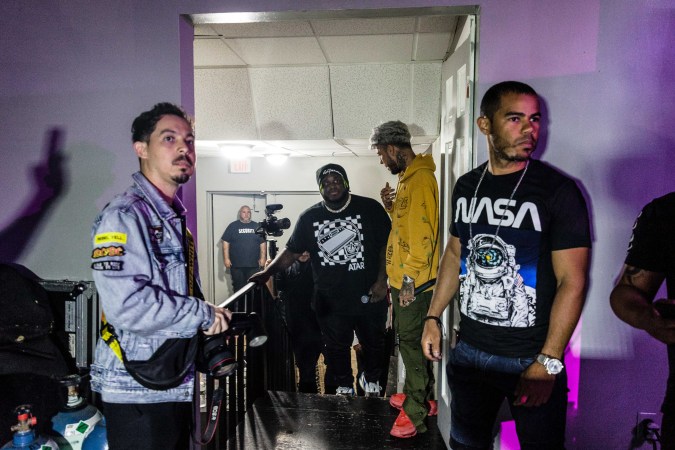
One of the first to really permeate American airwaves with his sound was El General, who went platinum and gifted us with anthems like “Tu Pun Pun” and “Rica y Apretadita.” Though relatively successful, he never got the backing he needed to get to the next level and was criticized for his “banal lyrics and dance-oriented sound.” A now (and then, frankly) comical series of words for a genre where it seems the dirtier, and more perreo-prime, the better. Once more melanin-rich puertorriquenos like Tego Calderon came on the scene, they often got the thug, rather than charming bebesito treatment in the media and beyond.
“They were [whiter], they looked good, they dressed good. And we were black…” Renato told Remezcla last year regarding colorism in the industry. “People were like, ‘This image looks beautiful, and this image looks más o menos; let me go with the [whiter] guys,’ and that’s what happened.”
To Sech, though, color “has nothing to do with it,” he says decidedly – listing Don Omar and Tego Calderon as success stories. “Eso es un punto afuera,” he says. The lack of resources, he believes, is more to blame. Panama has virtually zero large music labels in comparison to Puerto Rico, which boasts at least 10. “We don’t have a label to support national talent. There’s no culture around that. We have to initiate that culture,” Sech adds.
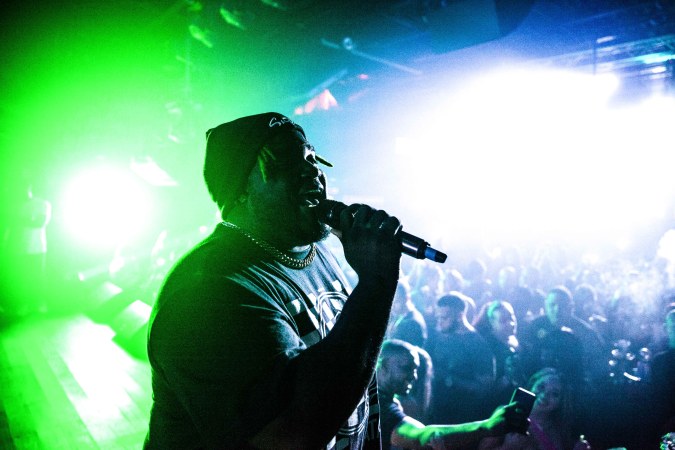
This is our time – and in a beautiful mirroring of early reggaeton days and reflection of the love between the two peoples, puertorriqueños are showing their support. “Tu Pollo,” a suave, racy song that struts between dancehall and R&B but is beholden to neither, was carried onto more international recognition with the Justin Quiles add. Now, collaborations with Nicky Jam, Zion y Lennox and Ozuna help to further cement Sech as a respected fixture in urbano’s elite.
“Panamanians have always had talent,” Dimelo Flow tells me a few weeks later. “This moment has just opened the eyes and ears of the public – of music labels, producers, and the world – to Panamanian talent.” Though his favorite of the impressive stack of work he’s concocted with El Oso is “Otro Trago,” he recalls listening to earlier tracks, knowing he’d go big. “Sech is, how do I say this,” he pauses, “loco, when it comes to making music.”
Initially, Sech was making dancehall, full. Tracks like “Mi Linea” exhibit a smooth five-clap bounce that’ll never go out of style. Yet it was “Miss Lonely,” an experimental reggaeton track that went big in Colombia and got the attention of Rich Music, that really pushed him over the urbano edge and set the foundation for his sonic DNA. But he’s all but let go of dancehall, calling his latest work a retocadito version of the clasico.
Urbano has…
“A lot of branches,” Sech attempts to complete the thought.
Yes, and it’s…
“Grosero.”
Well… predictable, I clarify. Refreshing, and evident in any track you pick out of a hat with his name on it, though, Sech doesn’t prioritize sound over lyricism nor vice versa, investing the necessary time in both. Each flaunts Morales’ silk-bathed voice and tells parts of his story or makes room for his persona to lure women in with absolutely no intention of committing or giving falsas promesas. His distinct sound – which Flow himself has difficulty describing, simply referring to it as “el estilo de Sech” – is a dreamy blend of R&B, dancehall and reggaeton.
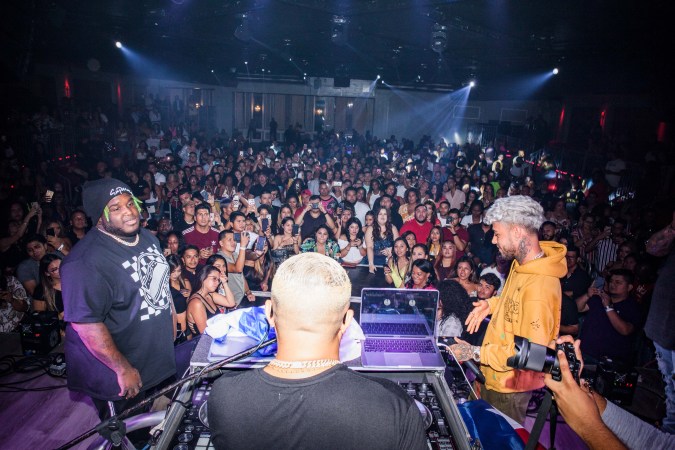
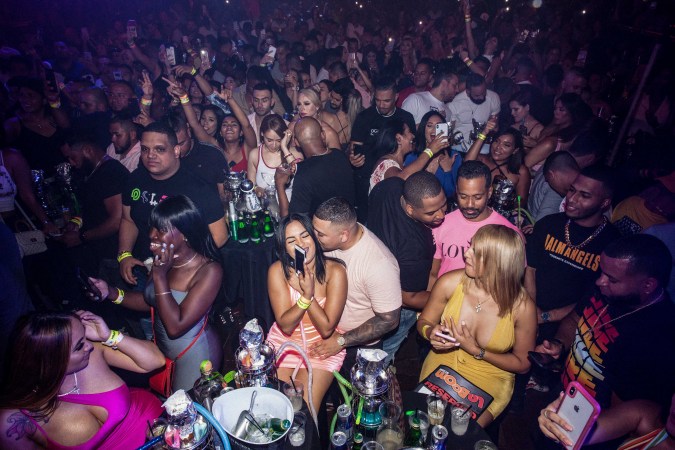
He believes Panamanian artists would be at the forefront of the urbano movement “if they did what they had to do,” which, in his eyes means making what he believes people want to hear right now – reggaeton. Whether it’s in hybrid form or purely à la carte is up to the artist, but the essence is practically unbudging.
“I have to get to a higher position so that I can speak with more authority, and have everyone listen to me,” he explains regarding his thoughts on how to push the Panamanian imprint in urbano. “If [Daddy] Yankee says something…” people listen, I fill in. “Claro!”
The crowd at La Boom gets especially riled up, and scattered panameños on the floor wave their small flags with proud fervor, as a somehow lively Sech takes the stage to give Nueva York a quick taste of his show that night.
Why sleep when you’re dreaming awake?
In “Soñando Despierto,” Sech and BCA go back and forth in a tear-jerking reflection of his path to this very moment and what it means not only for Sech but for Panama as a whole. “When someone like you makes it, we all make it,” BCA utters genuinely in Spanish. “And if I don’t make it?” Sech responds with a palpable tinge of fear. “You’re going to make it,” the other asserts. “Dios esta contigo.”
That opening track unfolds with a pinch from Himno Istmeño, Panama’s national anthem. It was the last song he’d write, record and add to the 12-song collection on the final night at the studio in Puerto Rico ahead of the album’s release. The supreme talent, stress and sacrifice it took to get to this moment is perhaps most evident in that most vulnerable of songs. “No saben lo que yo he pasado,” he breathlessly quavers, “lo mucho que yo he trabajado, para llegar donde yo he llegado – y el menosprecio que yo he pasado.”
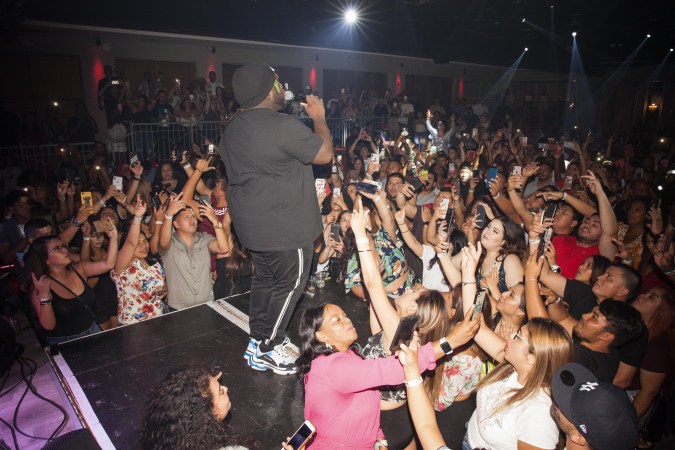
Though humble, Sech is well-aware of his potential, only wishing he could clone himself to facilitate and expedite the process of getting there. “Romperíamos todo, pa’ que sepas,” he says.
The triple Ds – discotecas, drugs and drinking – and all the other otherwise commonplace fixings of fame aren’t his style. Mas aún, he isn’t in this for fame at all. Whoever gets into the music industry for that form of notoriety, he says, is an idiot: “Llegas y te das cuenta que eso no te da nada.”
A few months ago, while trying to catch some Zs on his tour bus, he heard his voice echo from the entryway of a tiendita in a town seven hours from the city in Ecuador. The thrill of hearing his music in remote corners of Latin America and the diaspora is enough of a high in itself.
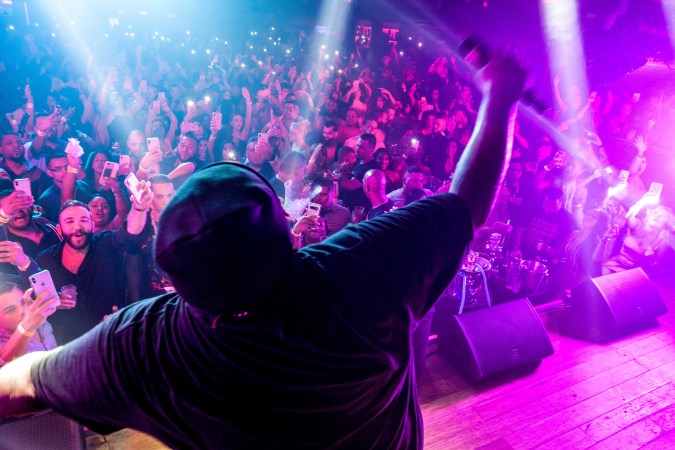
Sech will never be satisfied. “Llegue hasta aqui, pero…,” he grasps for air. “Hey, wait I still have to reach [Anglo] Americans [in the U.S.] – what do I do? I go there. And when I’m there I realize that we’re missing China and that we’ve still got… and so on. The world. I feel like that’s what being an icon is about. The entire world knows who Yankee is. It doesn’t matter the language.” Like Yankee, he hopes to get to a place where he makes music from a place of overflow and freedom, solely because he wants to, not because he has to.
“I’ll sleep when I’m 30. I promise,” he lies. Then, in a clearly experienced, swift, two-step leap from the chair to the door during a brief moment of distraction on my part, Sech slides out the Remezcla doors where Dalex and Rich Menendez are waiting. He glances back flashing a mischievous smile. Surely, he forgot to tell me, “voy al baño.”
